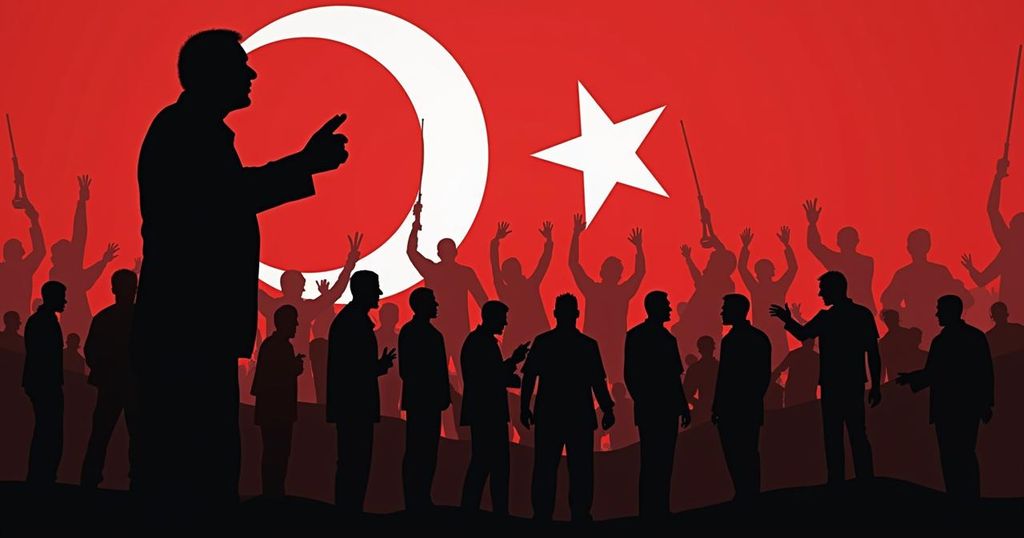Kais Saied’s Quest for Re-Election Amidst Controversy in Tunisia

Tunisia’s President Kais Saied is running for re-election amid claims of autocracy and the suppression of opposition. With only two approved candidates, one imprisoned and the other a former supporter turned critic, the election raises concerns about its legitimacy. Saied has accused migrants of exacerbating the country’s economic woes, while socio-economic difficulties persist, including 16% unemployment. This election is viewed as a critical referendum on his leadership amidst widespread dissent.
Tunisia’s President Kais Saied is seeking re-election amidst a contentious political landscape, receiving support from his followers as he is perceived by opponents as an autocrat. This upcoming election on Sunday has attracted attention due to a lack of viable opponents; only two candidates were approved by the electoral commission. One, Ayachi Zammel, was sentenced to 12 years in prison for falsifying documents just five days before the election, while the other, Zouhair Maghzaoui, transitioned from a supporter of Saied’s power grab to a critic. Under President Saied, who was elected in 2019, Tunisia has seen significant political changes: parliament was suspended, the constitution was rewritten, and power has consolidated into the presidency. This marks Tunisia’s third presidential election since the ousting of long-term leader Zine al-Abidine Ben Ali in 2011, which had marked the beginning of the Arab Spring, a series of uprisings aimed at overthrowing autocratic regimes. Although Saied formerly promised a revitalized democracy and economic reform, many now argue he has reversed years of progress, making the upcoming election more of a referendum on his leadership. Human rights organizations highlight the increasing repression, noting that many opposition figures have been arrested and excluded from the political process. As protests occur in the capital, Tunis, demanding fair elections, the environment leading up to the election remains charged with discontent. In addition to political dilemmas, the country grapples with economic challenges, including an extreme unemployment rate of 16% and the migration crisis, as Tunisia becomes a migration point to Europe. Despite this, President Saied’s incendiary rhetoric, particularly toward marginalized groups, has led to a complex political narrative as he wields blame for the country’s issues on migrants. This cycle of political maneuvering and economic turmoil sets the stage for a critical election.
Tunisia is recognized as the birthplace of the Arab Spring and was once heralded as a model of democracy in the Arab region. However, since President Kais Saied’s rise to power in 2019, the democratic progress that had been made appears to be eroding. Critics argue that Saied’s actions have resulted in significant constraints on civil rights and democratic practices. His presidency has been characterized by a series of controversial actions, including the dismissal of parliament and the consolidation of power, prompting fears of a return to autocratic governance. The political atmosphere is charged, with accusations of human rights violations and the silencing of dissent. Voter turnout has significantly declined, reflecting widespread disillusionment with the electoral process. Economic indicators also highlight challenges, with high unemployment and increased migration pressures complicating the country’s socio-political landscape.
The upcoming presidential election in Tunisia signifies a critical juncture for the nation, confronting serious issues of democratic governance and economic distress. President Kais Saied stands as the dominant candidate amid a political landscape marred by the absence of genuine opposition and allegations of electoral manipulation. His consolidation of power poses stark questions regarding Tunisia’s democratic future and will likely result in low voter engagement. Ultimately, various factors, including human rights concerns and economic instability, will shape the outcome and direction of Tunisia beyond this electoral exercise.
Original Source: www.bbc.com







